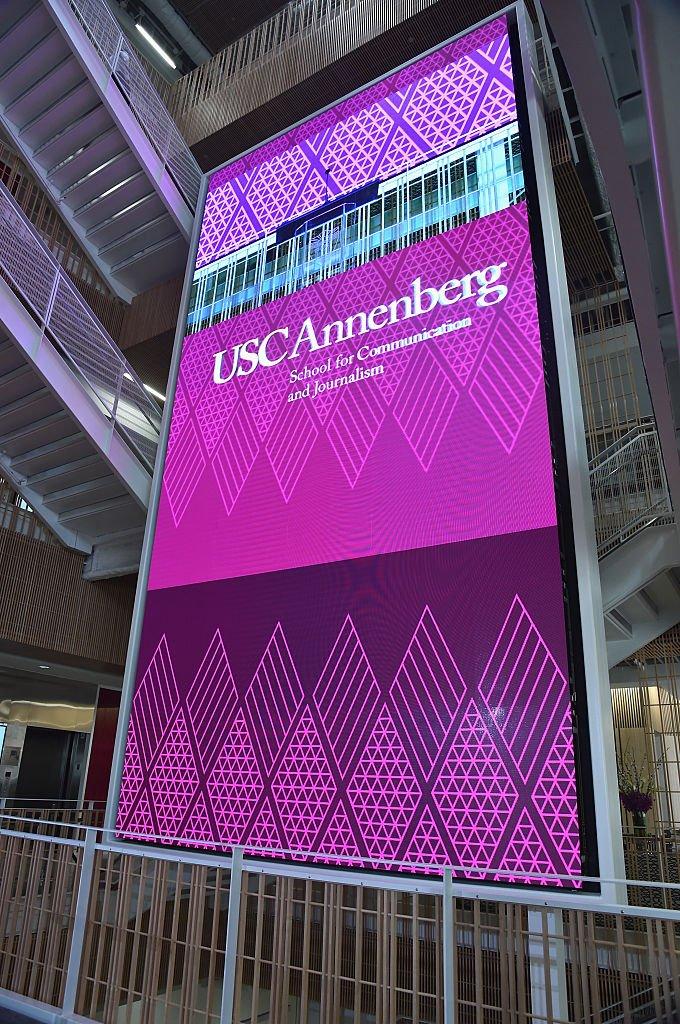Photo: Federico Parra / Stringer

news
Spotify Premium: UMG window gives new view of the future
Rounding up recent tech news that impacts livelihoods in the creative community ...
Spotify's prospects look better thanks to Universal Music deal
On April 4 Spotify and Universal Music Group announced a long-term deal where Spotify will drop its objection to windowing restrictions, and can qualify for reduced royalty payouts if it hits high-traffic streaming targets. The new window lasts two weeks after an album's drop date, making certain releases available to Spotify Premium subscribers only during that time. Single track releases will not be subject to this new restriction. UMG Chairman/CEO Lucian Grainge said, "In a market this dynamic, one evolving more rapidly than ever before, success requires creative and continual re-evaluation of how best to bring artists' music to fans ... The only constants must be great music and fair compensation for artists and creators." That dynamic market, along with corporate finance deadlines, is ultimately what persuaded Spotify to make the first-ever exception to its demand that all premium content also be available on its ad-supported free tier.
Comcast moves on mobile, expanding its Xfinity brand and platform
Leading cable co. and ISP Comcast announced its Xfinity Mobile offering on April 6, reselling Verizon network service to existing Xfinity customers. The announcement focused on affordability, mobile data, and the availability of Comcast's millions of Wi-Fi hotspots. However, there is potentially much more involved than converting Xfinity Triple-Play users (cable/internet/landline) to quadruple-play customers. By controlling the set-top box and aggregating customer data, Comcast is in a position to boost evolving digital lifestyles, such as second-screen and other multi-platform experiences. Xfinity's set-top platform came through the 2016 Olympics earning kudos, and mobile lifestyle could be considered a must-win competition for cable companies that want to remain in the digital game.
Verizon stokes anticipation for AOL+Yahoo launch
On April 3 AOL execs and spokespeople started hyping this summer's planned launch of Verizon's combined AOL+Yahoo entity, to be called Oath. AOL CEO Tim Armstrong tweeted, "Billion+ Consumers, 20+ Brands, Unstoppable Team. #TakeTheOath. Summer 2017." A spokesperson told Business Insider, "You can bet we will be launching one of the most disruptive brand companies in digital." Later, Armstrong clarified that the Yahoo brand will be strategically retained for consumers, while Oath is the term used on the corporate side with business partners.
Keith Urban honored on April 5 at 2017 GRAMMYs on the Hill Awards

Justin Bieber
Photo: Denise Truscello/Getty Images for Wynn Las Vegas
news
Justin Bieber Breaks Streaming Record As Spotify's Most Listened-To Artist
Justin Bieber currently boasts the most monthly listeners on Spotify, scoring the biggest number in the platform's 15-year history
Just five months after the release of his sixth studio album, Justice, Justin Bieber has broken the internet. As Spotify's all-time most listened-to artist, the Canadian singer nabbed a total of 83.3 monthly listeners, based on the platform's July data. Tailed by The Weeknd (74.53 million monthly listeners) and Ed Sheeran (72.41 million monthly listeners), Bieber has remained on the charts, credited to surprise features over the summer and his "Peaches" collaboration with Daniel Caesar and Giveon.
Following the release of Justice, Bieber joined The Kid LAROI on the young Aussie rapper's single "STAY"—which has spent four weeks at No. 1 on the Billboard Hot 100—along with the remix of "Essence" by Nigerian artists WizKid and Tems. Featured on the deluxe re-release of WizKid album Made in Lagos, Bieber's appearance on "Essence" was accused of cultural appropriation on social media, but also received a global push on the Billboard charts, debuting at No. 82 on the US Hot 100.
In an oral history article about "Essence" by Rolling Stone, Bieber's DJ and personal A&R Tay James explained Bieber's impact on the song's remix:
"When Justin hops on a record, he'll take it from just being a hip-hop or an urban or an Afrobeats record. It's going to bring other eyes; people who probably didn't even know about the record," James said. "Now they hear it, and now they know who Wizkid is. So, that's part of the reason why we want[ed] to hop on it, too, also just to shine light on these talented artists, which is what I think Justin is really good at."
With over ten years at the top of his game, breaking Spotify's all-time monthly listener record is yet another notch in Bieber's career trajectory and a milestone in his multi-genre influence.
For The Record: How Aaliyah Redefined Her Sound And Herself On 'One In A Million'

The Apollo Theater
Photo: Roy Rochlin/Getty Images
news
From Small Stages To The GRAMMY Stage: How Four Venue Professionals Became Presenters At The 2021 GRAMMY Awards Show
Operators and staff at the Station Inn, the Troubadour, the Apollo Theater and Hotel Café appeared during the 2021 GRAMMY Awards show to petition viewers for help—and promise an epic party for them if they do
The Recording Academy reimagined everything about the 2021 GRAMMY Awards show on a more intimate scale, and the choice of presenters was no different. When it came time to announce the Best Country Album winner, the person who appeared on screen wasn't a slick Nashville superstar, but a soft-spoken, older man who's unrecognizable to a global audience but beloved in the Music City. His name was J.T. Gray, and he grinned ear-to-ear on national TV.
In a segment recorded a month prior, Gray showed the camera crew around the Station Inn, the 145-person-capacity bluegrass venue he'd owned since 1981. Despite the room receiving almost no income for a year due to the live music industry shutdown caused by the COVID-19 pandemic, Gray was rosy about the future. "Getting to reopen the Station Inn, that's going to be a celebration like never before," he promised. "It's going to be a big party." He then announced the winner, Miranda Lambert, to the world. Gray was naturally quiet and reserved, a closed book. Not after that shoot, though.
"He was just beside himself the whole time," Jeff Brown, the Station Inn's marketing director, tells GRAMMY.com. "He just never believed it was happening. He just didn't believe that his little venue was being recognized on that kind of scale, that those many people in a place with the GRAMMYs and the Recording Academy's recognition actually paid attention. He just couldn't believe it." On Sunday, March 14, Gray astonishedly watched himself on CBS. The following Saturday, he passed away after a struggle with compounding health problems.
Gray might not get to attend the "big party" when things open up. But 9 million people heard his message.
<blockquote class="twitter-tweet"><p lang="en" dir="ltr">The Troubadour offers our deepest condolences to JT Grey’s family, friends, and those at <a href="https://twitter.com/stationinn1974?ref_src=twsrc%5Etfw">@stationinn1974</a>. JT created a special home for bluegrass, country music, and more in Nashville, TN. He leaves behind a beautiful legacy and will be missed by many.<a href="https://t.co/rGwZGuDoXK">https://t.co/rGwZGuDoXK</a></p>— Troubadour (@theTroubadour) <a href="https://twitter.com/theTroubadour/status/1374515380622794753?ref_src=twsrc%5Etfw">March 24, 2021</a></blockquote> <script async src="https://platform.twitter.com/widgets.js" charset="utf-8"></script>
For a year, venues worldwide have been hanging on by a thread: struggling to pay their rent, waiting in vain for federal aid, and given no clear finish line as to when they can reopen. That's why, with the Recording Academy's blessing, Executive Producer Ben Winston asked Gray, as well as representatives from the Troubadour and Hotel Café in Los Angeles and the Apollo Theater in New York City, to present at the 63rd GRAMMY Awards and talk about their economic struggles during the pandemic. Together, they sounded a shared refrain to the world: We matter to our communities, and we need help.
The venues that spoke their piece during the 63rd GRAMMY Awards were members of the National Independent Venue Association (NIVA). An assemblage of independent venue owners and promoters from around the country, NIVA formed directly in response to the 2020 lockdown. "We figured we'd better find a way to come together and lobby for federal assistance," Audrey Schaefer, a board member and the Communications Director for NIVA, tells GRAMMY.com. "Because otherwise, we're all going under."
The Steel Wheels at Station Inn in 2015. Photo: Erika Goldring/Getty Images for Americana Music via Getty Images
Last year, NIVA, along with the Recording Academy and other music organizations, lobbied Congress via the Save Our Stages Act and succeeded. On Dec. 27, the decree became the Shuttered Venue Operators Grant and passed along with the COVID relief package. "In that grant fund is $16 billion," Schaefer says. "For an organization that didn't exist before … nobody gave us any hopes of being able to secure that kind of funding. But we did. We got the law passed."
However, venues have not yet seen that money. "We understand that the applications will start at the beginning of April," she adds with relief in her voice.
In the meantime, Scheafer mulled over how best to convey to the world the existential crises venues face. "I was thinking that the GRAMMYs couldn't possibly be at the Beverly Hilton like it normally is—in a big ballroom—because we can't be together," she says. "I thought, 'What if the GRAMMYs were to have the award show, and instead of having all the performances under one roof, they were to have them in independent venues?'"
To try and give this idea legs, Schaefer reached out to Daryl Friedman, Chief Advocacy Officer of the Recording Academy's Advocacy division. "He said, 'Listen, Audrey, I think that's a great idea, but they have a million great ideas. So, let me take it to them and we'll see what happens,'" she recalls. Schaefer persistently followed up. "I kept asking Daryl, 'What do you think? What are you hearing?'"
But unbeknown to her, the Recording Academy and the production team were already independently planning to highlight independent venues and their employees as an advocacy initiative and add a personal moment to the broadcast. "And then I found out that, oh my gosh, they do want to do it," she adds with awe.
Billie Eilish at the Troubadour in 2019. Photo: Neilson Barnard/Getty Images for SiriusXM
Granted, the Recording Academy didn't agree to host performances at independent venues. But Schaefer calls the idea they decided to go with "so much better." Instead, venue professionals would take viewers on a tour of their workplaces, illustrating their value to their communities and why they desperately need help. Participants included the Station Inn's Gray; Rachelle Erratchu, the night manager at the Troubadour; Billy Mitchell, the tour guide and overall house cat at the Apollo Theater in Harlem; and Candice Fox, a bartender at the Hotel Café in Hollywood.
For Erratchu, the problem extends further than keeping the lights on at the Troubadour; the entire live music ecosystem is in trouble. "We need everybody else to survive so that we can survive," she tells GRAMMY.com. "If we don't exist and all the other venues across the country don't exist, the tour circuit as we know it and have relied on it for decades won't exist anymore."
For Billy Mitchell, the Historical Tour Manager and overall global representative of the Apollo Theater who has earned the title of "Mr. Apollo," his job isn't a means to an end; he lives and breathes it. Mitchell's time at the Apollo began in 1965 when he ran errands for James Brown and his band. During the telecast, Mitchell relates a funny story of how the Godfather of Soul sent him all the way home to the Bronx to get his report card, threatening to put his job on ice if he didn't get better grades.
COVID forced the Apollo to temporarily furlough some its staff. To be forced to stop, it was heartbreaking, to be honest with you," Mitchell tells GRAMMY.com. "I give tours to people from all over the world, and they're unable to visit because of COVID restrictions and things like that." While the not-for-profit has offered digital programming in the meantime, most of it has been free as not to burden fans. Thankfully, at press time, all staff members have returned full-time.
Billy Mitchell at the Apollo Theater in 2009. Photo: Jemal Countess/WireImage via Getty Images
The Apollo has been lucky, in a sense; corporate and private donations have kept it afloat. Still, they're not out of the woods yet. "Donations are needed so that when we do reopen, we can pump out those great shows and bring back our staff," Mitchell says. "We want to bring back our staff as soon as possible."
In the clip played during the 2021 GRAMMY Awards show, Mitchell addressed viewers from the empty audience. "We miss our audience and we can't wait until our doors open up again," he says. "We just can't wait."
Candice Fox, a bartender at Hollywood's Hotel Café, believes there will be an outpouring of activity at her workplace once it's safe again. "I like to believe people are going to want to make up for lost time," she tells GRAMMY.com. "I know that people are itching to perform. People are so excited to experience that exchange of energy again. So, I think it's going to explode."
In line with Erratchu's thoughts on the overall music ecosystem, Fox notes that Katy Perry cut her teeth at the 65-capacity room on Cahuenga Boulevard. "She wasn't the big pop star she is now; she was just a girl with a guitar," she says. "So many artists' careers and the GRAMMYs couldn't exist without small, independent venues like the Hotel Café because you've got to start somewhere." In her clip, Fox ruminates on the regulars she's missed for a year, pouring a Boddingtons and mixing an Old Fashioned to an array of empty stools.
Sister Sparrow and the Dirty Birds at Hotel Café in 2015. Photo: Christopher Polk/Getty Images
At the end of every venue vignette, each venue representative announced the winner of their assigned categories: Best Country Album for Gray (Miranda Lambert's Wildcard), Best Pop Solo Performance for Erratchu (Harry Styles' "Watermelon Sugar"), Best Rap Song for Billy Mitchell (Beyoncé's and Megan Thee Stallion's "Savage Remix") and Album Of The Year for Fox (Taylor Swift's folklore). All four were thrilled to appear and encourage viewers to support their workplaces—whether by donating directly, paying for a livestream or purchasing a T-shirt.
That way, the lights at the Station Inn, the Troubadour, the Apollo and Hotel Café can flare up again, ensuring these cultural hubs don't become figments of the past. And if you want to know how memorable the inevitable "COVID is over" parties will be, just look at Gray's blazing smile during the GRAMMYs.
"I can probably count a very [small] number of times that I've seen him truly smile," the Station Inn's Brown reflects. "But truly smiling—that's what he was doing here."
Click here to support the Station Inn.
Click here to support the Troubadour.
Click here to support the Apollo Theater.
Click here to support Hotel Café.
Click here to support NIVA.

Photo: Alberto E. Rodriguez/Getty Images
news
USC Annenberg Inclusion Initiative & Universal Music Expand Partnership To Study Racial Inequality In Music
"We must illuminate how the lack of people of color in key roles thwarts inclusion throughout the industry," says Annenberg's Dr. Carmen Lee, the project's lead researcher
USC Annenberg Inclusion Initiative and Universal Music Group (UMG) have announced an expanded partnership to study racial inequality in the music business. In the coming months, the project will evaluate the entire industry to determine systemic racial inequalities and provide recommendations to address the issues and change the system.
Together, the parters in the study will examine, "all facets of the industry - major and independent music companies, labels and publishers, digital platforms, radio and live promoters; as well as artists' teams (including managers, agents, attorneys and publicists) - to determine the extent to which people of color are excluded from leadership positions," according to Billboard.
"There are currently gaps in access and opportunity for people of color, especially Black executives, in the music business” said Dr. Carmen Lee, Annenberg Inclusion Initiative faculty member and lead researcher for the study "Beyond placing a spotlight on these discrepancies, we must illuminate how the lack of people of color in key roles thwarts inclusion throughout the industry. I am eager to lead the charge, flanked by the Annenberg Inclusion Initiative, and in partnership with Universal Music Group, a company with a proven track record for change."
The new study follows the Annenberg Inclusion Initiative's deep dive into gender disparity in the music industry, launched in 2017 and conducted annually. The study's findings that only 2 percent of music producers and 3 percent of engineers/mixers across popular music are women ignited an industry-wide commitment to solving geneder inequality, as the Recording Academy launched Women in the Mix in 2019.
Earlier this month, UMG formed its Task Force for Meaninngful Change (TFMC), co-chaired by UMG executive VP/general councel Jeff Harleston and Motown Records president and Capitol Music Group EVP Ethiopia Habtemariam, to fight for equality, justice and inclusion. The announcement came shortly after the music industry's "Black Out Tuesday" and widespread protests against racism and police brutality following the recent killings of George Floyd, Ahmaud Arbery and Breonna Taylor. UMG also established a dedicated $25 million "Change Fund" to back the Task Force's research and recommendations.
"We look forward to our continued work with the Annenberg Inclusion Initiative as we work to advance diversity and inclusion in all corners of the music business," Harleston and Habtemariam said in a joint statement. "We are committed not only to improving UMG’s performance, but also to fostering real and sustainable change across the entire music ecosystem. We know that music can do better and believe that, informed by research and data, change can be most meaningful and constructive."
#TheShowMustBePaused Creators Brianna Agyemang & Jamila Thomas Talk Vision, Next Steps

Photo: Rafael Henrique/SOPA Images/LightRocket/Getty Images
news
UMG Launches $25 Million "Change Fund" & Task Force To Fight For Equality, Justice & Inclusion
The label group has identified six areas of focus and its plans to enact meaningful change: "EVERYTHING is on the table.”
Universal Music Group (UMG) has announced a new dedicated "Change Fund" as well as the formation of its Task Force for Meaninngful Change (TFMC) to fight for equality, justice and inclusion. The announcement comes shortly after the music industry's "Black Out Tuesday" and widespread protests against racism and police brutality following the recent killings of George Floyd, Ahmaud Arbery and Breonna Taylor.
Co-chaired Jeff Harleston, Executive VP, General Counsel, UMG and Interim Chairman and CEO Def Jam and Ethiopia Habtemariam, President Motown Records & EVP Capitol Music Group, the TFMC has identified six areas of focus and plans, "“to be both a resource and ally to our internal and external community.”
“The problems we are addressing are not new and they certainly do not have easy solutions, but we are dedicated to fighting for real, lasting change,” they wrote in a letter obtained by Rolling Stone. “As Lucian [Grainge, Universal Music Group’s Chairman and CEO] wrote, UMG has committed resources and empowered us to create a task force to be both a resource and ally to our internal and external community."
Among the six areas of focus, Aid/Charitable Giving will fund charities with grants to support business development, legal services bail, mental health resourses and more. The first round of grants will benefit Black Girl Ventures, Black Lives Matter, Black Mental Health Alliance, Colin Kaepernick Foundation, Color Of Change, Equal Justice Initiative, National Association of Black Journalists, Silence the Shame, Sickle Cell Disease Foundation of California, The Bail Project, and When We All Vote, according to the letter.
“We know our community, colleagues, artists and partners are suffering,” the letter said. “We feel it and we’re living it but we’re also energized to fight for change. We’re asking for you to lock arms with us — we want to hear your voice. Now is the time to be heard!”
Houston Rappers Talk George Floyd's Musical & Community Legacy
